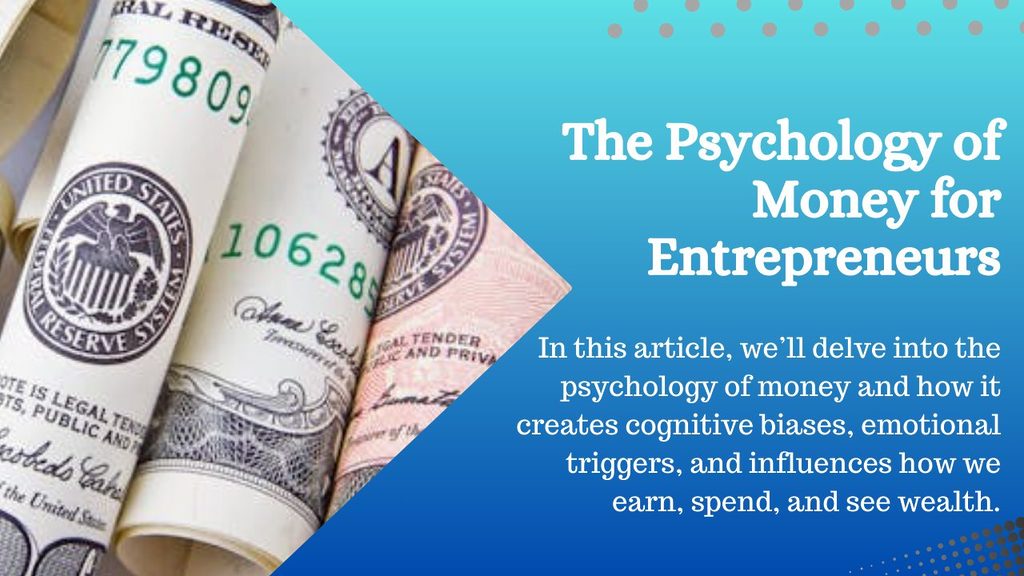How to Use the Psychology of Money for More Abundance

Money – the elusive, intangible currency that governs much of our lives.
It’s more than just pieces of paper or numbers in a bank account…
It’s a power that shapes our behaviors, emotions, and even to some extent our identities.
In this article, we’ll delve into the psychology of money and how it creates biases, emotional triggers, and influences how we earn, spend, and see wealth.
Understanding this psychology isn’t just about accumulating more wealth…
It’s about fostering a mindset of abundance that can lead to financial prosperity and fulfillment.
The Power of Perception
Perception plays a pivotal role in our relationship with money. How we perceive wealth, scarcity, and our own financial status significantly influences our decisions and behaviors.
Consider this: two individuals earning the same salary may have vastly different feelings about their financial situation based on their perception of wealth.
One may feel abundant and content, while the other may feel constrained and impoverished.
This perspective feeds abundance or the lack of it and the importance of mindset in achieving financial success.
Research in behavioral economics has shown biases that shape our perceptions of money.
The “scarcity mindset,” for instance, leads individuals to focus on what they lack rather than what they have, creating feelings of deprivation and anxiety.
On the other hand, adopting an “abundance mindset” involves acknowledging and appreciating the resources at one’s disposal, creating a sense of empowerment and possibility.
Which mindset do you think will be more apt to actually live in abundance?
The abundance mindset wins every time.

The Influence of Childhood Experiences
Our attitudes toward money often stem from early childhood experiences and the attitude our family had.
Did you ever hear your parents say “Money doesn’t grow on trees” or “We can’t afford it”?
Those stem from having a scarcity mindset.
Family life with financial stress or abundance imprints lasting beliefs and behaviors regarding money and it gets passed down from generation to generation.
For example, children raised in households where money was a source of tension may develop a fear of financial instability, leading to risk-averse behaviors in adulthood.
And on the other hand, those raised in environments of financial abundance may exhibit a sense of entitlement or overindulgence, potentially leading to irresponsible spending habits.
The key is to recognize it so you can change it in your own life and not pass it on to others. Only then can you begin to increase your financial success.
That’s because you can then reshape your mindset to align with your financial goals and values.
Emotional Triggers and Financial Decision-Making
Emotions exert a profound influence on our financial decision-making processes.
Studies have shown that emotions such as fear, greed, and euphoria can cloud judgment and lead to irrational financial behavior.
When you buy something, for example, you buy with emotion and later justify your purchase with logic.
Always!
It’s one of the secrets to marketing…
Good marketers know to play to the emotions of their customers.
Knowing this is helpful when making financial decisions because you can stop and ask yourself if it’s a need or a want, if you’re ‘buying’ because of a certain emotion you have, or if you are making a good decision.
For example, they say to buy low and sell high. But what do many people do? They panic and when things look scary with the market they rush out and sell…low.
They react to the market with emotions instead of using logic.
In short, knowing about emotional buying helps you make better financial decisions.
Whether that be investing for the future, impulse buying online, or simply what food to buy when you’re hungry.
By cultivating emotional intelligence and mindfulness, you can pause, reflect, and respond thoughtfully rather than react impulsively to financial decisions.
Developing resilience in the face of market fluctuations and practicing disciplined financial habits – aka logical buying – can mitigate the influence of emotions and create more long-term wealth.
The Science of Wealth Mindset
Neuroscience offers fascinating insights into the brain mechanisms underlying our attitudes toward money.
Functional magnetic resonance imaging (fMRI) studies have revealed that the brain’s reward system responds robustly to financial gains, activating regions associated with pleasure and satisfaction.
On the other hand, financial losses trigger activation in brain regions associated with pain and aversion.
Understanding the neuroscience behind it can start you cultivating a positive wealth mindset.
By leveraging techniques such as visualization, affirmations, and gratitude practices, you can rewire your brain’s neural pathways to associate money with abundance, opportunity, and fulfillment.
Science has proven this is possible.
If you want to learn more about how the brain works and its connection to success, I recommend the book Breaking the Habit of Being Yourself by Dr. Joe Dispenza.
This book will blow your mind.
In a Nutshell
The psychology of money is key to unlocking abundance and financial prosperity.
By unraveling the learned biases and behaviors, emotional triggers, and societal influences that shape our relationship with money, you can break through the limitations you have and create an abundance mindset.
Remember, wealth is not merely a measure of monetary assets…
It’s a reflection of mindset, values, and purpose.
And it’s within your power to shift that mindset and create your own financial freedom.
Be sure to check out my article How to Develop a Millionaire Mindset to Create More Abundance.
